Four thousand families around Sydney may be placing their young children at risk by spraying partially treated sewage from their onsite aerated sewage systems on lawns where children play.
The sewage may contain disease causing microorganisms such as viruses and Cryptosporidium which can cause gastroenteritis in children who play in areas sprayed with sewage.
Katrina Charles, a PhD student in the School of Civil and Environmental Engineering at the University of New South Wales and the Cooperative Research Centre for Water Quality and Treatment, says the domestic wastewater is safe to use provided the householder is aware of the risks and takes sensible precautions.
“Don’t spray the wastewater on lawn areas where kids play and don’t spray it on vegetable gardens” Ms Charles said.
“The best way to reuse this wastewater is through an underground irrigation system where the microorganisms become trapped and die in the soil but the water and nutrients are still available for the garden.”
Ms Charles has recently completed a study into the effectiveness of sewage treatment systems used in unsewered areas around Sydney.
She found that the disinfection used in these aerated treatment systems are not as effective as disinfection in larger sewage treatment plants and only remove a small number of disease causing microorganisms.
“Our results indicate that a safer way to reuse the wastewater is through an underground irrigation system.”
“These treatment and irrigation systems start from about $11,000 for an average block. But the value of water as a resource has never been plainer than in this drought. And underground irrigation systems not only dispose of sewage safely but provide water and nutrients for gardens.”
When there is an infected person in the house, sewage may contain a high number of disease causing microorganisms, including viruses, Cryptosporidium or bacteria. For example rotavirus which can be transmitted by sewage is the most common cause of severe gastroenteritis in young children worldwide.
Katrina was one of 15 early-career scientists who are presenting their work to the public and media as part of Fresh Science 2004. Fresh Science is a national competition aimed at getting the work of young scientists into public attention.

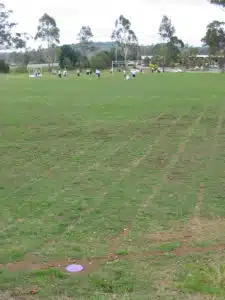
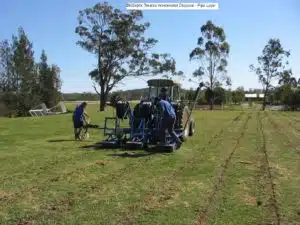
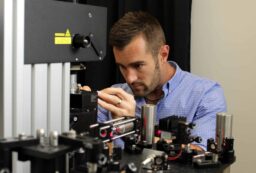
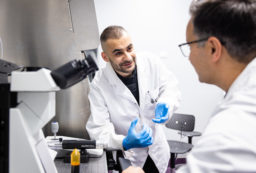
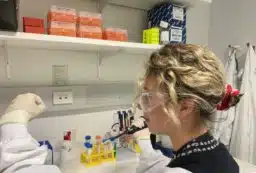
 Fresh Science is on hold for 2022. We will be back in 2023.
Fresh Science is on hold for 2022. We will be back in 2023.